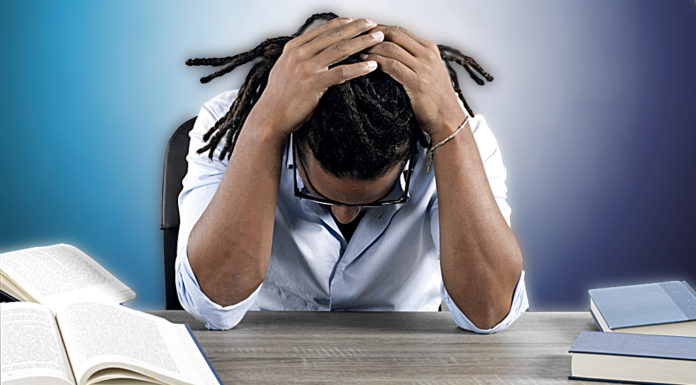I now teach at an alternative middle school, and it should come as no surprise that nearly all of our students are black boys, along with three Latino boys. My students have been pushed out of traditional schools—not for criminal behavior but because of “defiance.”
Defiance is a subjective offense that can be defined different ways depending on the teacher, but this is what it usually looks like in a school setting: The teacher asked the student to do something and the student refuses. This is because some teachers believe that when they say jump the student should jump, but the students believe that teachers are trying to tell them what to do.
This creates the infamous power struggle in the classroom between teacher and student. Normally teachers win out in the power struggle, but the reaction of the teacher varies. Some teachers come from the notion “what I say goes, and if I say do something and you don’t do it then it is the ultimate crime.” Other teachers believe in the idea of picking your battles. Is this a battle that is worth fighting? And if it’s not, then find other alternatives to get the student to follow suit.
My school is the last stop for many of them. We cannot afford to kick them out onto the streets in 7th and 8th grade just because we want to punish them for their anger and defiance.
Plus, with a staff of all males, what message would it send to the community if we were to “put them out” instead of handling the problem?
Trust me, there are hard days and my boys push my buttons. I am a black male, in my late 20s, former collegiate athlete and fan of rap music—and they still push back. So I am not exempt from their disrespect or disruptions, but I cannot sit around and let our school, which is designed to help them, hurt them with punitive discipline practices.
You will be hard pressed to find research that shows suspending a student from school will teach them the social skills they need to stay in school. To me suspensions are only good for labeling students with the infamous Scarlet Letter —not the “A” Nathanial Hawthorne coined, but a “B” for “bad” students.
Now teachers, I know what many of you are thinking, “It’s those bad kids that are misbehaving in class and ruining the learning environment.” “They need to be out of my class I don’t care where they go, but they need to be out.” So then the principal dealing with an upset teachers agrees and says, “Yes! They need to be put out!”
There goes the student suspended at home on the couch not learning—or in most cases, especially in my city, in the streets doing something that will either find them dead or in jail. Often times these students are our black boys, the students historically suspended more than any other student in the school.
Now this is not just a school problem, but a problem with society. We live in a world where we believe strongly in punitive discipline. No one ever wants to read the research that says discipline doesn’t work especially when we are referring to punishment of black boys.
Punishment does nothing but isolate our black boys in school, who need the most support and love. So we kick out this boy who needs the most support and attention in the school instead of providing them with what they need. We send them home, knowing all the while they will likely get little supervision or correction during their days off. So, this young man is out of school for three or five or seven school days, slipping further behind on his academics and free to roam the streets. So he seeks out alternatives that occupy his time, like gangs, drugs, and violence. Makes no sense.
Yet we have this mindset that if we don’t punish kids and kick them out of school we are enabling them. They are more prone to do it again because they didn’t serve a punishment.
Teachers and parents are notorious for enabling students. Teachers enable students by not punishing them because they want to be the cool teacher who everyone likes instead of the teacher that everyone respects. Parents do the exact same thing. They will not give their children consequences because they are more interested in being their child’s friend and not a parent.
I’ve come to realize that sometimes you have to be the bad guy for your student to understand that the choices they make have consequences and bad choices often carry bad consequences. One of the most effective forms of punishment is what most schools call in-school suspension, or what we call in our school Guided Learning. In the Guided Learning room, an adult is supervising the students who must complete their assignments, but they do not get the other freedoms associated with being in class with their peers. They still get the academic support they need, but they do not get the freedoms of passing periods and lunch and they must talk about the choices that landed them in there in the first place. Another option is a lunch detention, and anyone who has ever thought middle school knows that taking away a students’ lunch privileges with their friends is a big deal and can be an effective discipline that improves behavior and keeps students in school.
Schools have to look at other approaches and alternatives to discipline. One great approach is restorative justice. This approach is just beginning in a lot our schools and holds a great deal of promise, but we still have a lot to learn about how to carry this out in an effective way. (More on that in my next post).
No doubt black boys are harmed by punitive discipline practices in school. But it also affects the schools and trickles down to communities. Including the one I live in.
David McGuire is a middle school teacher in Indianapolis, IN. He blogs at Indy Ed.










